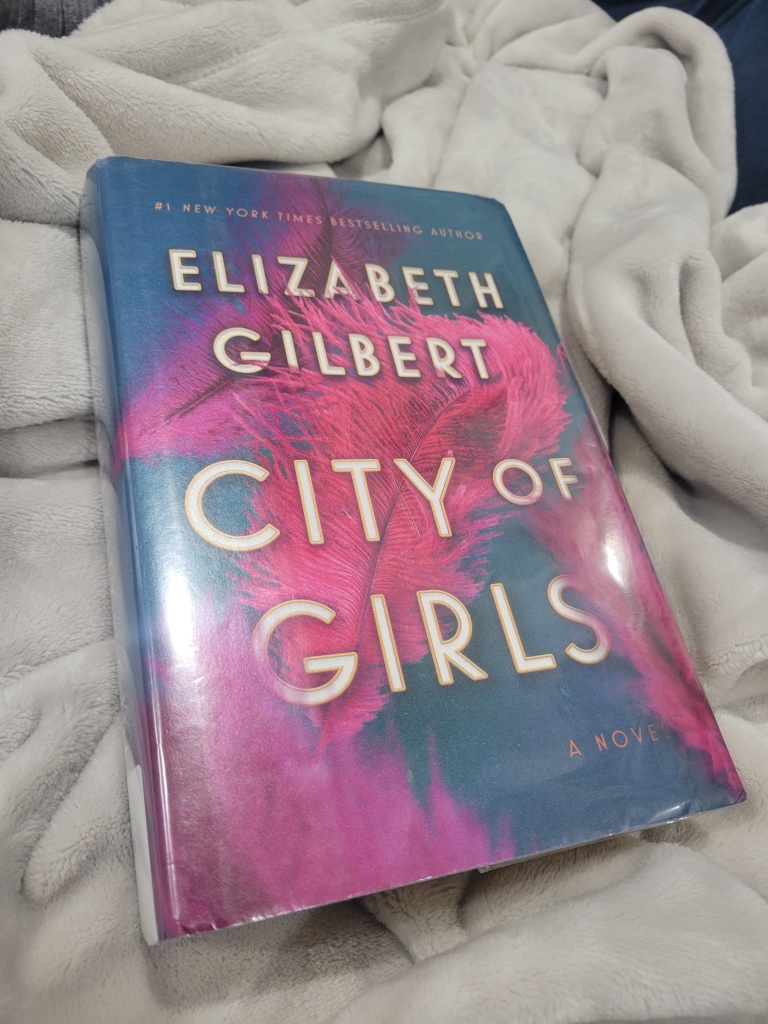
Recap: It’s 1940, upstate New York, and Vivian has just been kicked out of Vassar College. It was the all-girls’ school way of reprimanding the student who wasn’t taking things seriously and wasn’t passing her classes. But Vivian didn’t see the point, living in a time when women were only expected to marry after college anyway. After being kicked out, her parents sent to her Manhattan to live with her Aunt Peg. With no plan, no focus, and no idea what it’s like to live in the city, Vivian is thrown into a world beyond her imagination. She knew Aunt Peg ran a theater in New York City, but that’s about it. She soon found it was theater that performed low-tier original shows full of dancers, showgirls and lackluster talent. But it was a unique community offering, barely kept afloat by the regulars who attended the shows no matter how bad they were. Vivian, who loved to sew and make clothes, was in her glory. Upon learning of her talents, she was made to be the costumer for the theater, giving Vivian an “in” to befriend the women who were faster, flashier, sexier and harder partiers than she. Among that group was Celia. It’s not clear whether Vivian wants to be Celia or be with her, but nonetheless she befriends her, and soon Vivian is “inducted” into the group of boisterous women.
They encourage her to lose her virginity, to drink, to go clubbing, and Vivan loves every second of it. A progressive girl – particularly for that time – she has no shame about anything she’s doing. She simply wants to enjoy life, especially this big city life. Her Aunt Peg and Peg’s partner/friend, Olive, turn a blind eye to her outings and yet, always look out for her. That ultimately comes in handy.
Vivian is at the theater at a time when things start to blossom. Aunt Peg’s estranged husband, Billy, comes to New York from out of town and lives with them for a while. So does Peg’s friend, Edna, a superstar actress escaping the war in Europe alongside her handsome husband, Arthur. Billy, a writer, writes a new show for the theater, which Edna stars in. Suddenly smash reviews are coming in left and right and so are enormous audiences. Aunt Peg’s theater is the talk of town. And Vivian is living in the moment! But a sexually charged, alcohol-infused evening leads to a risque public moment – particularly for the 1940’s – that forces Vivian to leave the city, head hanging in shame.
And this, my friends, is just the first half of the book.
Analysis: City of Girls had been one of those books sitting at the top of my TBR List since it came out in 2019; I just hadn’t gotten around to it. I heard it was feminist (yay!), historical fiction (love!) and written by Elizabeth Gilbert, best known for her nonfiction smash, Eat Pray Love. So for several reasons, I was excited to dive in. I tore through it, though it is lengthier than my average read. It certainly entertained me, and I was riveted by the characters, but it was simultaneously both slow to start and then lost momentum at the end.
The first half of the book does a lot of scene-setting, introducing characters and offering a lot of exposition. The characters are a delight, and the dazzle of New York City, well, dazzles. But when one of my friends asked me if I’d gotten to page 250, I then had incentive to really power through the novel, and with good reason. The impact of page 250 is shocking and wild. At that point, I needed to keep reading to learn what happened next. The book is also told with a framing device of a now 95-year-old Vivian telling her story of her life to someone named Angela. The reader doesn’t find out until much later who Angela is, or how she’s connected to Vivian. So as the book continues, I became increasingly curious about who Angela was. But when I finally found out, it felt anti-climactic. And what’s most confusing is the book’s pacing. While the first half of the book centers around one year Vivian spends in New York, the second half tells the story of the rest of her life, speeding through decades and new characters. Vivian didn’t end up with any of the people I thought she would, and that’s probably the point. Ultimately, she ends up surrounded by strong women, a far cry from the “weaker” women described as her fellow classmates at Vassar earlier in the novel. And that womanly, feminist viewpoint is beautiful in its own right. I loved so many parts of this book. So much of it was fun, so much unexpected. But it also suffered from moments of meandering, and an ending that while nice, wasn’t as powerful as I wanted it to be.
MVP: Aunt Peg and Olive. This power duo becomes Vivian’s surrogate parents as her actual parents don’t legitimately seem to care much for their daughter. Peg and Olive are creatives, forward-thinkers, true New Yorkers through and through. The few scenes with them are some of the most powerful in the novel. They are the definition of strength.








